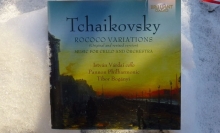Main Sponsors
-
 Reiso Pécs
Reiso Pécs -
 Hotel Lycium****
Hotel Lycium**** -
 Pécs ZOO
Pécs ZOO -
 http://www.mecsekegyesulet.hu/
http://www.mecsekegyesulet.hu/ -
Doro Ékszer
-
 Hetényi Pincészet
Hetényi Pincészet -
 Zsályaliget Élménypark
Zsályaliget Élménypark -
 Fabrik Barkács Szaküzlet
Fabrik Barkács Szaküzlet -
 Katica tanya
Katica tanya -
 E.ON Hungary
E.ON Hungary -
 http://www.ipark-pecs.hu/
http://www.ipark-pecs.hu/ -
 https://www.otpbank.hu/otpklub/Fooldal
https://www.otpbank.hu/otpklub/Fooldal -
 http://www.pecsibalett.hu/hindex.html
http://www.pecsibalett.hu/hindex.html -
 www.lakics.hu
www.lakics.hu -
 Gépszer
Gépszer -
 http://www.kormany.hu/hu/emberi-eroforrasok-miniszteriuma
http://www.kormany.hu/hu/emberi-eroforrasok-miniszteriuma -
 http://www.pnsz.hu/
http://www.pnsz.hu/ -
 http://www.pecs.hu/
http://www.pecs.hu/ -
 Mischl Autóház
Mischl Autóház -
 Öko-Trade Ltd
Öko-Trade Ltd -
 Bóly and Vicinity Savings Bank
Bóly and Vicinity Savings Bank -
 Mecsekerdő Forestry Ltd
Mecsekerdő Forestry Ltd -
 http://www.deltakarek.hu/
http://www.deltakarek.hu/ -
 University of Pécs
University of Pécs -
 http://kloe.hu/
http://kloe.hu/ -
 http://www.lafarge.hu/
http://www.lafarge.hu/ -
 http://www.gondoldo.hu/
http://www.gondoldo.hu/


Kristóf Csengery’s critique
Kristóf Csengery’s critique of the album by István Várdai and Pannon Philharmonic Orchestra

The album, Variations on a Rococo Theme by Tchaikovsky, recorded with the orchestra and István Várdai, was released last year by Brilliant Publishing House. The critique by Kristóf Csengery was published in ÉS (Life and Literature Magazine) on 8 May.
The critique is faithfully presented:
Album of Alternatives
Unfinished pieces and compositions finished by a different composer, recompositions and alternative versions, constitute an interesting field regarding the history of classical music. Many different kinds, you name it, but there are basic types. The most famous example is Schubert’s Unfinished Symphony and it’s still unknown why it has only two finished movements. Schubert was not prevented from finishing his symphony by his death, unlike Mozart while composing Requiem, Puccini composing Turandot, Berg composing Lulu or Bartók writing Piano Concerto No 3. These are well-known examples as well but with various results: Mozart’s Requiem was completed by his student, Süssmayr turning it into the officially recognised version but posterity criticised the standard of his work so, apart from Süssmayr’s, other recognised versions have been created and are performed as well. Franco Alfano completed Puccini’s Turando and Tibor Serly finished Bartók’s Piano Concerto No 3 in a relatively short time but not all unfinished works had such favourable fate: since Schönberg refused to finish Berg’s Lulu and because of the widow’s objection the piece could only be performed unfinished and Friedrich Cerha’s version, conducted by Pierre Boulez, was first performed only in 1979 in Paris forty-seven years after 1937 premier of the two-act version. There is an even more peculiar case concerning Bartók’s Viola Concerto which was so incomplete, with hardly any original parts written by the composer, that Tibor Serly, instead of completing it, technically had to compose the piece based on Bartók’s sketches. Although the piece is regularly performed Bartók researchers do not attribute it to Bartók.
The popular variation series, Variations on a Rococo Theme Op. 33, for cello and orchestra by Tchaikovsky is truly by far the most bizarre case. The composer wrote the piece on the turn of 1876 and 1877 for the teacher of Moscow Conservatory, Wilhelm Fitzenhagen. The cellist performed the piece successfully but he wasn’t satisfied with it: he didn’t think it was impressive enough. Since he considered the piece of his own (‘I ordered it so it is mine’) he thought he had the right to alter it any way he fancied. Tchaikovsky disagreed and objected but Fitzenhagen outsmarted him, the publisher and Jurgenson as well who eventually published the cellist’s version. For a long time it was Fitzenhagen’s version that became widespread and popular, however, it was significantly different from that of Tchaikovsky. Fitzenhagen left merely the introduction of the theme, the first variation and the coda unaltered but he made changes to the order in the case of other details. There was a version which he ended by inserting another variation’s end to it – and there were versions which he simply left unfinished. In the spirit of the nowadays prevailing demand for authenticity, we might consider this an uncouth action but it’s necessary to consider the historical aspect as well. There used to be critical publications in Tchaikovsky and Jurgenson’s time but philology wasn’t at its present stage of development and the prevailing attitude regarding musical public opinion was that of practicality and success orientation. Altering anybody’s composition wasn’t considered to be a crime and if the new solution proved to be more preferable it became the accepted version.
The original version of Tchaikovsky’s Variations on a Rococo Theme has become the focus of interest due to Raphael Wallfisch’s efforts. Nowadays, it is quite common for a cellist – like Julian Lloyd Webber or Steven Isserlis – to play the original and not Fitzenhagen’s version. That’s what Miklós Perényi has been doing for some years now. István Várdai and Pannon Philharmonic Orchestra, conducted by Tibor Bogányi, have recently released a record implementing an interesting idea; the record starts with Tchaikovsky’s version and ends with that of Fitzenhagen. Let the listener be the judge. As far as I’m concerned, I’m used to and fond of Fitzenhagen’s ambitious and popular composition but I also enjoy listening to Tchaikovsky’s original version and I would hardly be able to tell which one of the two I would consider superior, they both have different virtues. As for István Várdai’s luxuriant and melodious performance, the elegance of the swift parts, the Mozartian cheerfulness and ease, the freedom of playing music and the affability of tunes amazes me in both versions and as a bonus, I can listen to when the musician plays the same part slightly differently. Pannon Philharmonic Orchestra, conducted by Tibor Bogányi, performs exactly the way a European symphony orchestra should; precisely, subtly, expressively and in a caring manner.
It is an added bonus that the recording includes more than ‘just’ the two versions of the Variations on a Rococo Theme but it also offers another alternative: a stylistic one. It is well-known that the variations confront us with the portrait of Mozart-loving Tchaikovsky (Serenade for String Orchestra) however, here and now as a kind of ‘contrast medium’ the romantic Tchaikovsky can take the floor as well, Nocturne (Op. 19 No. 4) with its lyrical, melancholic cantilena, Pezzo Capriccioso (Op 62) starting with a gloomy prelude followed by a rhapsodic fantasy and its middle-part perpetually in motion suitable for a brilliantly virtuoso piece then finally Andante Cantabile movement from String Quartet (Op 11) with its cello transcription with orchestral accompaniment in which István Várdai’s multicoloured, free and communicative performance with extraordinary sound, sees and exploits the potential in confession-like serenade music.
/Kristóf Csengery: Record of Alternatives, Life and Literature, 05/08/15/